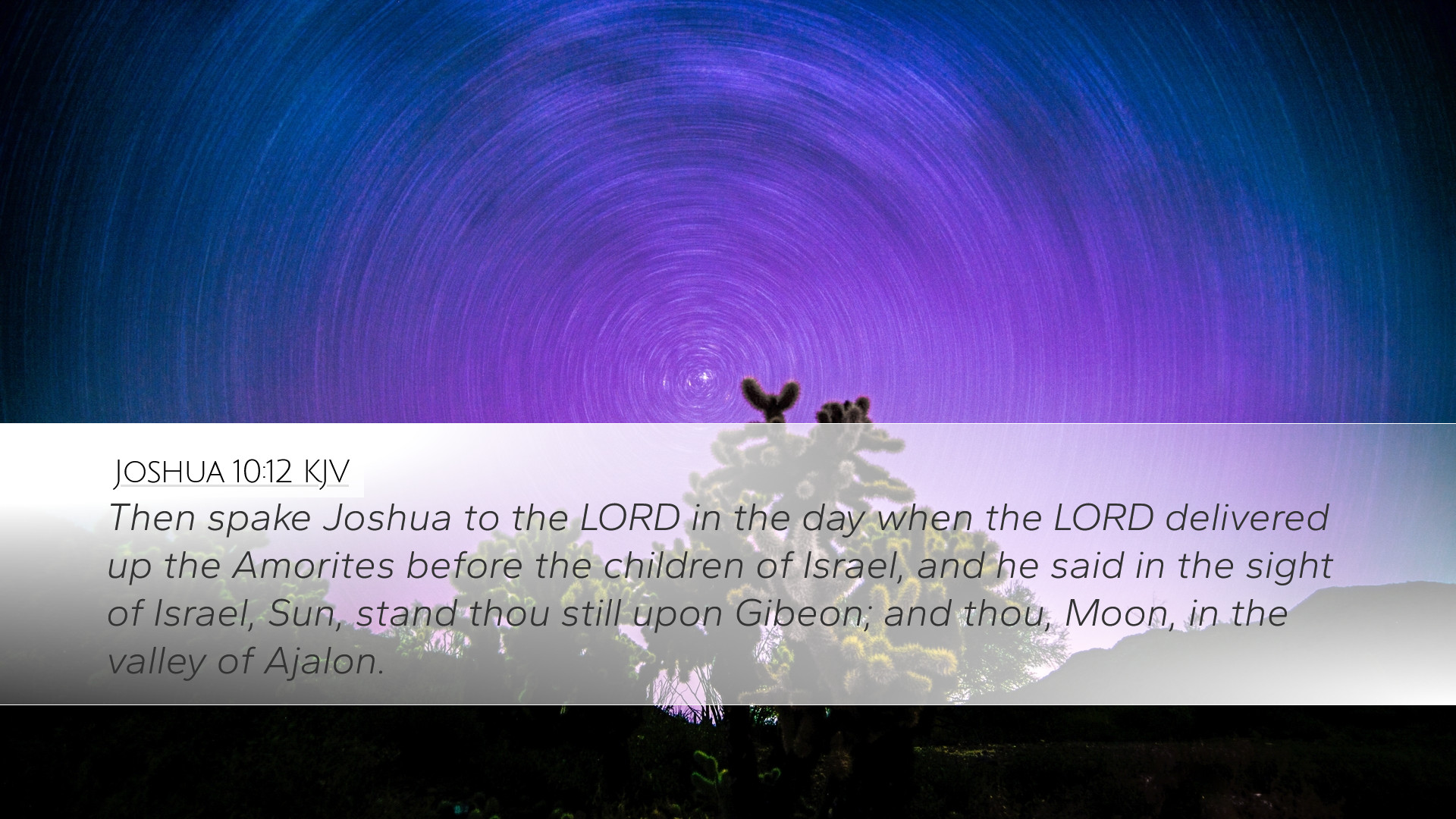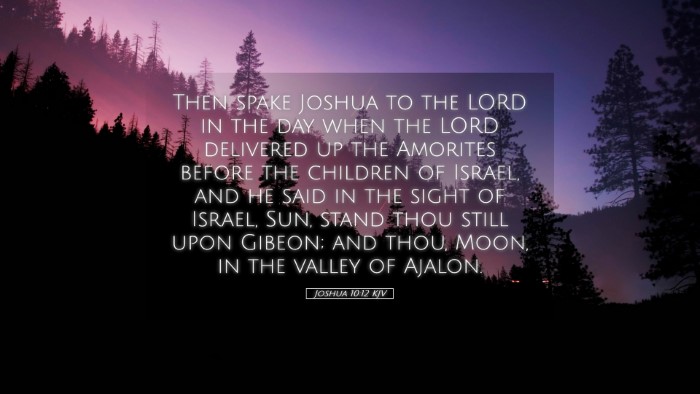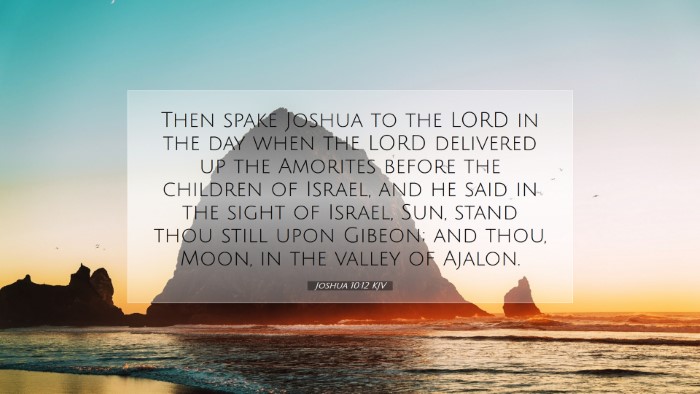Commentary on Joshua 10:12
Joshua 10:12 states: "Then spake Joshua to the LORD in the day when the LORD delivered up the Amorites before the children of Israel, and he said in the sight of Israel, Sun, stand thou still upon Gibeon; and thou, Moon, in the valley of Ajalon."
Contextual Background
This verse is situated within a pivotal narrative of Israel’s conquest of Canaan. After the Israelites had crossed the Jordan and begun their campaign against the Canaanite cities, they faced the Amorites, who had aligned against them. The event illustrated the extraordinary power of God in delivering His enemies into Israel's hands.
The Significance of the Request
In this remarkable passage, Joshua's request for the sun and moon to stand still is steeped in theological importance:
- Divine Intervention: Joshua’s plea highlights the necessity of divine assistance in accomplishing the great tasks set before him. It demonstrates a profound faith in God's sovereignty over creation.
- God’s Control Over Nature: The command for celestial bodies to halt physically illustrates God's omnipotence. As Matthew Henry notes, “What is too hard for God to do?” This reflects the belief that God governs not just human affairs but the cosmos itself.
The Experience of Joshua
Joshua had just led Israel into one of its most crucial battles. Amidst the tumult of warfare, Joshua exhibited extraordinary faith, asking for time to secure victory:“It shows his boldness in prayer, as he boldly takes God at his word, believing in the power granted to him." - Albert Barnes.
This moment is significant for leadership models within the church today, illustrating the value of fortitude and reliance on divine power in times of trial.
Theological Implications
In light of this extraordinary event, several theological reflections emerge:
- The Nature of Prayer: Joshua’s direct appeal to God encapsulates the essence of fervent prayer. Adam Clarke argues that this reflects the enduring relationship between God and His people, emphasizing that prayer must come from understanding God's capabilities.
- God’s Faithfulness: The verse exemplifies God's loyal commitment to His promises. He assured Joshua of victory, and this miracle underlines that assurance. "Nothing can stand against the people of God when He is with them," Clarke elaborates.
- The Place of Faith in Victory: This narrative shows that faith is a precursor to victory. It serves as an admonition to believers that the seemingly impossible can become possible through sincere faith and reliance on God.
Implications for Modern Readers
For contemporary pastors, students, and scholars, Joshua 10:12 encourages a holistic approach to understanding God's majesty and the role of faith in the Christian experience:
- Encouragement in Difficult Times: Just as Joshua faced overwhelming odds, believers today can find courage knowing that they too can call upon the power of God in their battles.
- Understanding God’s Supremacy: The cosmic event serves as a reminder that God’s power transcends earthly limitations. This understanding fuels worship and reverence.
- The Call to Bold Faith: Joshua's audacious request invites believers to step out in faith—trusting God for miraculous works even in their own lives.
Conclusion
Ultimately, Joshua 10:12 challenges believers to reflect on the depth of their faith. The extraordinary halt of the sun is not merely a historical event; it is a call to recognize the boundless possibilities available through faith in God. As Matthew Henry concludes, “Let us then walk in the light of the Lord, trusting in His omnipotent sovereignty, recognizing that with Him, all things are possible.”


